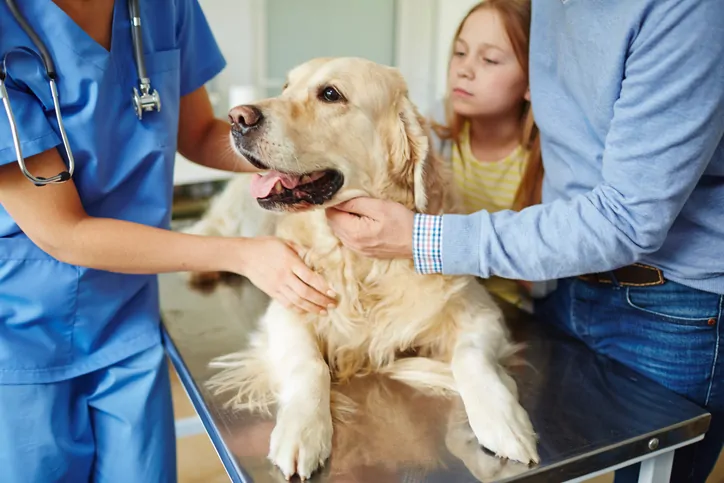Worms are primarily transmitted to dogs through their mother's placenta, contaminated soil and fleas.
The most common types of worms in dogs are hookworms, roundworms, whipworms, heartworms, and tapeworms.
Common symptoms of worms in dogs include weight loss, fatigue, gastrointestinal distress, distended stomach, and visible worms in feces.
Intestinal worms are treated with deworming medications while heartworms are treated with a series of injections.
Keeping your canine worm-free is a common challenge that most dog owners face. Worms cause serious health problems for dogs if left untreated so responsible dog owners take special care to understand the dangers, symptoms, and available treatments for canine worms.

Worm larvae and eggs are very difficult to see, and by the time you see adult worms, they are already a problem. Therefore, it's important to know where worms come from to begin with:
Dogs are most commonly infected with hookworms, roundworms, whipworms, heartworms, and tapeworms. Hookworms fasten themselves to dogs' small intestines, suck their blood, and cause anemia, which is potentially fatal to puppies. Small roundworm larvae are present in a large percentage of newborn puppies but can grow to be several inches long and can cause potentially-fatal intestinal blockages. Whipworms cause few symptoms and live in dogs' small intestines, where they produce eggs that can survive in the soil for years. Heartworms are foot-long worms that dwell in the heart, lungs, and arteries of infected dogs and can lead to severe lung disease, heart failure, and harm to other organs. Tapeworms are flat, segmented worms that transfer to dogs through ingested fleas, cause mild symptoms, and can grow up to two feet in length.
The best way to know if your dog has worms is to have your veterinarian conduct a fecal exam. You may, but, keep an eye out for certain symptoms and indicators at home that could indicate your dog has worms.
While tapeworms are visible in your dog's stool, other intestinal worms usually have to be identified through microscopic inspection of a stool sample to look for eggs. It is advisable to give your vet a stool sample when your dog is getting his annual checkup, even if there are no symptoms. A blood test can usually identify heartworms, but, a radiograph, ultrasound, or echocardiograph may be necessary in rare circumstances. Many dogs with heartworm disease in its early stages exhibit few or no symptoms, but the earlier treatment begins, the higher the success rate. Therefore, it is a good idea to test heartworms on a yearly basis.
Deworming medications come in a variety of forms that can prevent and treat intestinal parasites. These can be given via injection, pill, or topical application. When using pet store items, make sure you are giving the right dosage for your dog's body weight and that you are aware of the types of worms that each treatment is effective against. A single treatment of dewormer may also be insufficient to eradicate all worms from your dog's body. Fresh larvae can enter the intestine following deworming so more treatment may be required to eradicate the illness. Additionally, routine deworming is not always enough to stop mothers from spreading worms to their offspring, as a result, special medications may be needed. Dogs that are infected with heartworms need a special series of injections because intestinal dewormers are not effective for heartworms.
The best practice for most dog owners is to administer a worm preventative to your pet year-round. In fact, a dewormer for intestinal parasites is contained in many heartworm prevention treatments. Based on the worms present in your area of the country and the life style your dog leads, your veterinarian will advise you on the best course of action. There are also several actions you can do in addition to drugs to avoid worm infestations:
Preventing worms in dogs also protects dog owners. When worms are present in your environment, they are easier to catch than you may realize. Dog owners can be infected with worms by handling puppies and kittens, coming in contact with contaminated soil, cleaning up pet waste, or ingesting infected fleas when sleeping or playing with their dogs. You can reduce your risk of catching worms from your dog by wearing gloves, using a bag to collect feces, and keeping your lawn and garden clear of dog waste.
Phone: (855) 461-8259
Email: [email protected]